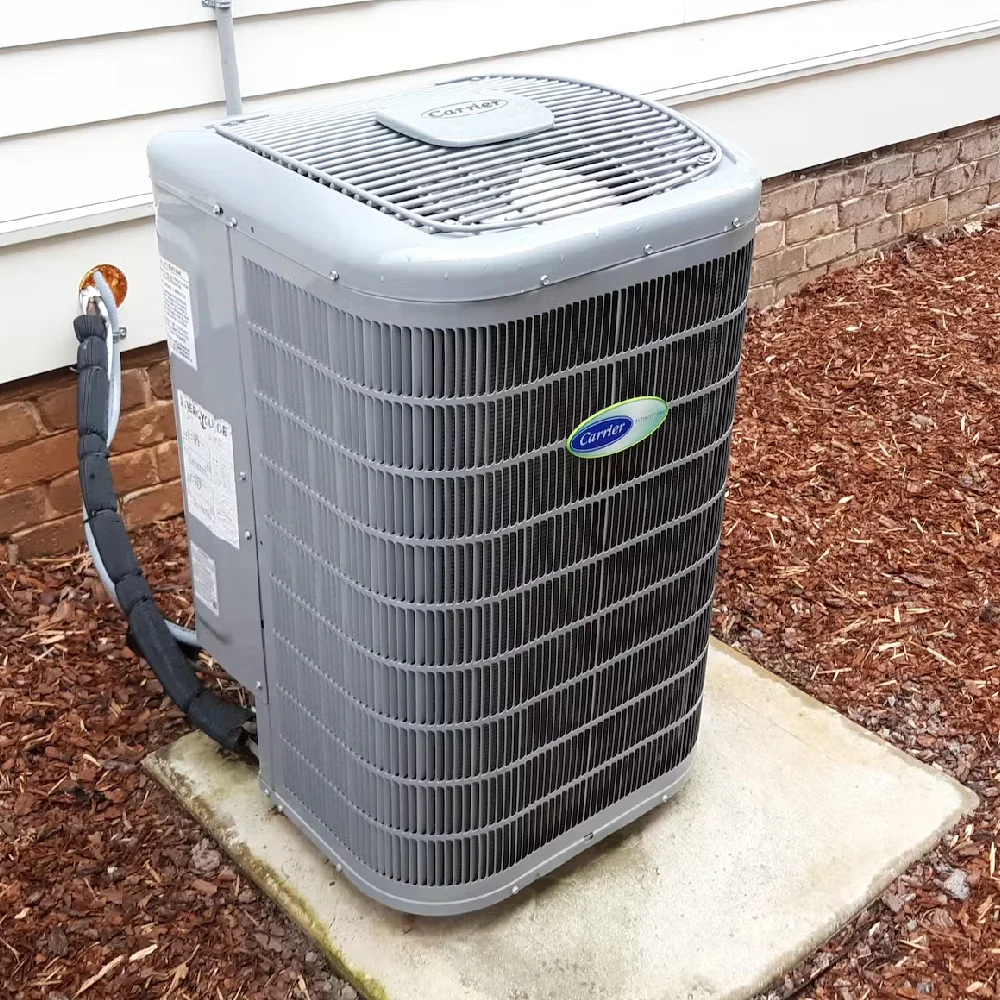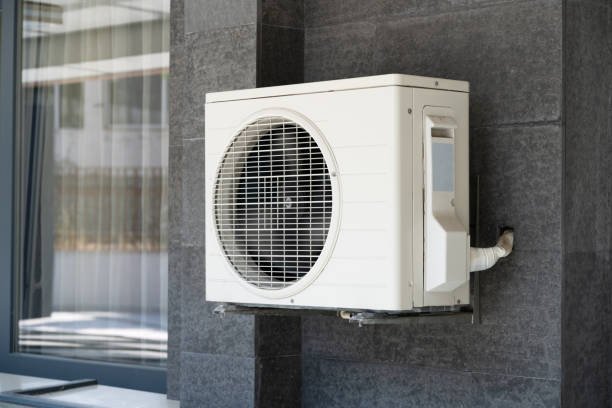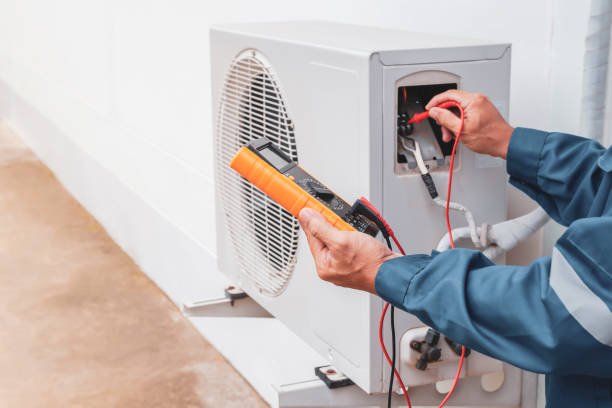Air Conditioner Lifespan: How Long Should Your Unit Last?
Introduction
When it comes to staying comfortable during the sweltering summer months, air conditioning units are a necessity for many households. However, like any appliance, air conditioners have a lifespan that you should be aware of. In this comprehensive guide, we delve into the intricacies of air conditioner lifespan, exploring factors that affect longevity, maintenance tips, and when to consider replacement. Whether you're searching for "air conditioner service near me" or looking for insights on "AC repair," you'll find valuable information throughout this article.
Air Conditioner Lifespan: How Long Should Your Unit Last?
Understanding the expected lifespan of an air conditioning unit is crucial for any homeowner. Generally speaking, most residential air conditioners can last anywhere from 10 to 15 years with proper maintenance. However, several factors influence how long your unit will actually last in practice.

Key Factors Influencing Air Conditioner Lifespan
- Type of System: Central air conditioning units tend to last longer than window units.
- Usage: The frequency and duration of use can greatly impact how long your AC lasts.
- Maintenance: Regular servicing can extend the life of your unit significantly.
- Installation Quality: Poor installation can lead to operational inefficiencies and reduce lifespan.
By understanding these factors, you can take proactive steps to ensure that your unit performs efficiently for as long as possible.

Significance of Regular Maintenance
Importance of Air Conditioner Service
Regular air conditioner service is essential for extending the lifespan of your AC unit. Just like a car needs regular oil changes, your AC requires routine check-ups. Neglecting maintenance can ac repair lead to minor issues escalating into major problems that could shorten your system's life.
Scheduling regular service appointments with a qualified HVAC technician ensures all components are functioning optimally.
Common Problems That Shorten Lifespan
Top Issues Leading to AC Failure
Various problems can arise during the life cycle of an air conditioning unit. Being aware of these issues allows homeowners to address them promptly before they lead to complete system failure.
- Symptoms include strange noises or inconsistent cooling.
- Can often be traced back to lack of maintenance or low refrigerant levels.
- Over time, electrical components can wear out or malfunction.
- Symptoms may include frequent tripping breakers or blown fuses.
- An improperly calibrated thermostat can cause inefficient operation.
- Signs include inconsistent temperature readings or erratic cycling on and off.
- Clogged drain lines can cause water damage and mold growth.
- Regularly inspect drainage systems for blockages.
- Over time, components naturally wear down due to continuous use.
- Signs include unusual noises or decreased cooling performance.
Addressing these common issues through regular checks and immediate repairs will help extend the overall life expectancy of your air conditioning unit.
Signs Your Air Conditioner Needs Replacement
When Should You Consider AC Replacement?
While routine maintenance is critical for prolonging the life of your AC unit, there comes a time when repairs become more costly than replacement. Here are some indicators that it might be time for a new air conditioner:
- If your unit is older than 15 years, consider replacement even if it seems functional.
- If you find yourself calling "AC repair near me" more often than not, it might be time for an upgrade.
- A significant increase in energy costs could indicate inefficiency in an aging system.
- Hot spots in your home could signal that your system isn’t working effectively anymore.
- Unusual sounds or smells could indicate serious mechanical issues requiring costly repairs.
- If you notice increased dust or humidity levels despite using the AC regularly, it may need replacing.
By recognizing these signs early on, you can save yourself from unexpected breakdowns and discomfort during those sweltering months!
Choosing Between Repair and Replacement
Making An Informed Decision
When faced with a malfunctioning air conditioner, homeowners often grapple with whether to repair or replace their unit entirely. Here are some considerations:
Cost Analysis: Determine whether repair costs exceed 50% of the cost of a new unit; if so, replacement may be wiser.
Energy Efficiency Ratings (SEER): Newer models tend to have higher SEER ratings which translate into lower energy costs over time—consider this when deciding between options!
Warranty Considerations: If your existing system is still under warranty but requires significant repairs, it might make sense to leverage that warranty for fixes instead of investing in a new system right away!

Future Plans For Your Home: If you're planning on moving soon but need immediate repairs now—repair might suffice until you're ready for a full upgrade later!
Technological Improvements in New Models: Newer units come equipped with advanced features such as smart thermostats and improved energy efficiency; consider whether these features would benefit you long-term!
Ultimately each situation is unique! Consulting with trusted HVAC professionals who offer services like “air conditioning repair near me” will yield invaluable insights tailored specifically toward YOUR heating/cooling requirements!
FAQs
1) What’s the typical lifespan of an air conditioner?
Most residential air conditioners last between 10-15 years with proper maintenance; however longevity varies based on usage conditions & brand quality!
2) How often should I schedule professional service?
It’s recommended that homeowners schedule annual professional service appointments at least once per year—preferably before peak cooling seasons!
3) Can I perform my own maintenance?
Yes! Homeowners should regularly change filters every month & clean outdoor units seasonally—but always consult pros when unsure about major repairs/diagnostics!
4) What’s involved in an annual tune-up?
A standard tune-up generally includes checking refrigerant levels & electrical connections alongside cleaning coils & inspecting all parts thoroughly—all aimed at ensuring optimal performance!
5) How do I know if my AC needs more refrigerant?
Low refrigerant levels typically manifest through decreased cooling efficacy along with potential ice buildup around evaporator coils—if noticed contact HVAC professionals immediately!
6) What are common signs my AC needs repair?
Look out for strange noises coming from vents (hissing/banging), excessive humidity indoors despite running systems properly—or noticeable increases in monthly utility bills!
Conclusion
Understanding the lifespan of your air conditioning unit is crucial not only for budgeting purposes but also for maintaining comfort within your home environment! With diligent attention paid towards regular servicing along with proactive monitoring against potential problems—you’ll maximize both efficiency AND longevity! So keep those questions flowing—whether seeking “AC installation near me” or reliable “HVAC services”—you’ve got what it takes now armed with knowledge about AIR CONDITIONER LIFESPAN: HOW LONG SHOULD YOUR UNIT LAST?
By following best practices outlined here today combined with scheduled professional maintenance visits—you stand poised ready face whatever hot summer days lie ahead comfortably cool inside no matter what Mother Nature throws our way outside!